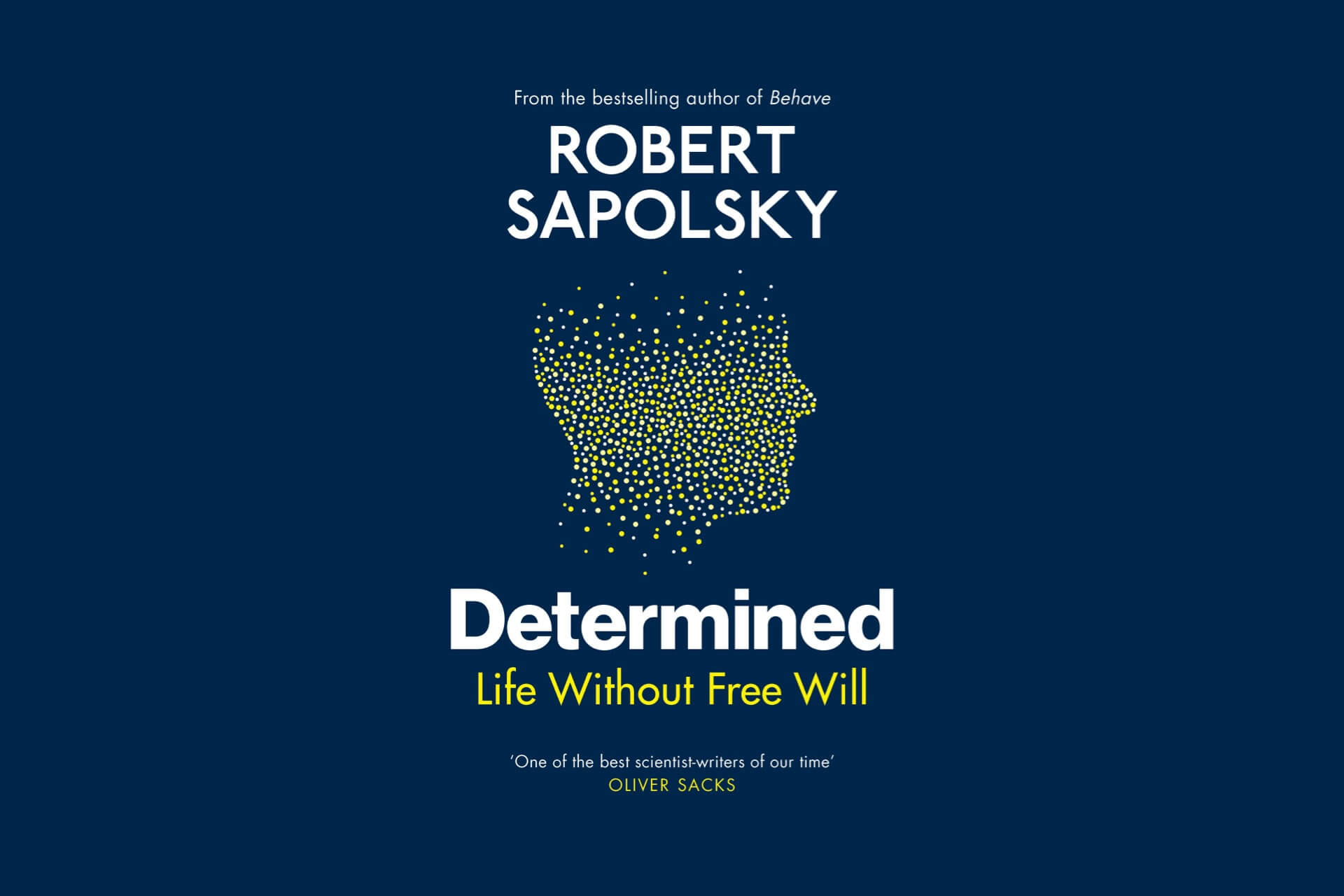Apr 30, 2024 Books
Let it be known I didn’t take sixth-form biology. I don’t know my cytoplasm from my ribosomes, and have no qualifications for reviewing this book besides a cheerful but admittedly shallow interest in the subject. On the other hand, Sapolsky is a MacArthur Genius Fellow and a professor of biology and neurology, and I assume he knows what he’s talking about — at least when it comes to the mysteries of the human genome. Whether or not you agree with the semantic framing of his central argument, and the conclusions he draws, is another matter entirely.
Sapolsky begins Determined with a famous anecdote in which a fictional old woman interrupts a cosmology lecturer, saying his claim the earth is floating in space is wrong and we’re all living on the back of a giant turtle. When asked what the turtle is standing on, the old woman replies, “Another larger turtle.” When probed further, the woman replies, “It’s no use, it’s turtles all the way down.”
Sapolsky then sets out to prove, from a scientific standpoint, that there is no such thing as free will. Our decisions — or rather, responses — are nothing more or less than the result of a complex series of biological interactions, environmental factors and cultural conditions. That it’s turtles all the way down.
I first discovered Sapolsky through his incredible Stanford undergraduate lecture series, ‘Human Behavioural Biology’, which has something of a cult following, racking up tens of millions of views on YouTube. In the first lecture, he wanders into the classroom, looking like a Russian novelist on vacation in a denim shirt and Birkenstocks. He asks the students to put their hands up if they believe in souls. If they believe in evil. If they believe in god. If they believe in free will. In response to the last question, a few brave students raise their hands. Sapolsky wags a genial finger at them, and says, “That’s about to change.”
His lectures are fascinating, profoundly moving and full of weird anecdotes from his 25 summers researching baboons in Kenya. He’s a funny and charismatic communicator, on par with Carl Sagan or Oliver Sacks, who makes even the most difficult subject comprehensible, whether it’s quantum randomness, chaos theory or the effects of famine on metabolic development in foetuses. There is a kindly, Wild Thornberrys-esque charm to him and his lectures and writings are full of fascinating digressions, jaw-dropping studies and a confounding number of musical theatre analogies.
On the face of it, his theory is self-evident. After all, if I was born with Tom Jones’ exact genes, in his exact circumstances, wouldn’t I obviously be Tom Jones, hit singer of ‘What’s New Pussycat?’? But this isn’t a philosophy textbook, and Sapolsky is a lot more confident in the laboratory than the symposium.
One of the reasons Sapolsky seems to care so much about his subject is because of the implications of a strictly deterministic universe on the criminal justice system. How can there be culpability, when things couldn’t possibly have been any other way? Sapolsky has given testimony for the Innocence Project in a number of criminal cases, speaking about what constitutes premeditation in neurobiological terms and other questions of moral responsibility. But in Determined, Sapolsky isn’t just letting individuals with severe frontal lobe impairment off the hook. This time he’s forgiving everyone, not only their sins, but also their virtues. His belief in the lack of free will, means we have a moral duty, if moral duty and strict determinism are even compatible, to overhaul the justice system, along with our attitudes to criminal offending.
Still, just because you believe there’s no such thing as human agency doesn’t mean you have to like it. Sapolsky is passionate about his subject. But he often expresses discomfort with the implications of his own argument. It’s not so easy to leave one’s feelings and prejudices behind. That, in short, is the whole point of the book.
Sapolsky is extremely convincing when it comes to laying out the evidence supporting the unconscious biological and environmental factors that shape our decisions, attitudes and prejudices. Nobody can watch his lectures or read his books and remain totally unconvinced that we aren’t all, on some level, hostages to our biology. On the other hand, it’s unlikely that Sapolsky’s critics will be accusing him of shoddy science. The problem is likely to be one of semantics.
Free will is one of those wishy-washy, mysterious yet fundamental concepts that nobody quite agrees on, like consciousness or time. In Sapolsky’s definition, free will is completely incompatible with determinism. To prove one is to necessarily disprove the other. But what do the philosophers say?
Philosophers say lots of things — they’re famous for it. But even if you could predict with certainty that someone is, say, about to smash their brother-in-law’s aquarium with a hammer, or buy their child a large strawberry ice cream, does that mean there is no agency involved? Is an inevitable choice, the same thing as no choice? Now we’re getting into territory I really don’t understand. But most philosophers don’t think the two concepts are mutually exclusive. In fact, they have a name for it: compatibilism.
Making lack of free will the subject of your book is an audacious choice, if only because it’s going to make a large swathe of tenured philosophy professors very annoyed. Even a perfect quantum simulation of our universe wouldn’t necessarily prove anything — the argument was never going to be won under a microscope. But you don’t need to believe in a lack of free will in order to feel the fundamental justice of Sapolsky’s argument: that we’re all at the mercy of our circumstances, and whether or not we’re ultimately free, we’re a lot less free than we think we are.
One might ask, what is the point of such a book? If we’re all bellhops of destiny, what can we do with that knowledge? According to Sapolsky, even if we can’t change our biological predilections and vulnerabilities, we can be changed by external forces, people, institutions, laws and wider societal beliefs — even if those institutions and that change were technically preordained. He thinks, as far as possible, we should try and overhaul our relationship to blame, and replace it with compassion, or at least understanding. But don’t worry, Sapolsky’s not throwing open the gates of Alcatraz and raffling off police helicopters just yet. Sapolsky acknowledges that whether or not you believe that people are responsible for their actions, that doesn’t mean no intervention is necessary. If someone bombs a children’s hospital, do we just shrug our shoulders and let it go? Obviously not. There are some problems that understanding alone can’t solve.
There are a few dud notes in the book. A long and pointlessly specific chapter about the execution of Ted Bundy. The inappropriately cheerful reference to the Camp David Accords of 1978, filed under ‘reasons to be hopeful’. The lingering presence of Sam Harris.
Some of Sapolsky’s solutions to the problems of a deterministic universe are a little vague. He cites the usual studies about Scandinavian prison models and restorative justice in post-apartheid South Africa, and invokes the unfortunately named concept ‘social quarantine’, which accidentally sounds a lot more dystopian than prison. But then again, it isn’t science’s job to solve our problems. Sometimes articulating the problem is the first step. Everything that comes after that — depending on how you look at things — is up to us.






